- Home
- Patrick Robinson
Ghost Force Page 2
Ghost Force Read online
Page 2
But Admiral Morgan’s craggy face lit up when he spotted the towering figure of his old sparring partner, Russian Admiral Vitaly Rankov, now C-in-C Fleet, and Deputy Defense Minister.
“Arnold!” boomed the giant ex-Soviet international oarsman. “I had no idea you’d be here. They told me you’d retired.”
Admiral Morgan grinned, and held out his hand. “Hi, Vitaly—they put you in charge of that junkyard Navy of yours yet? I heard they had.”
“They did. Right now, Admiral, you’re talking to the Deputy Defense Minister of Russia.”
“Guess that’ll suit you,” replied the American. “Should provide ample scope for your natural flair for lies, evasions, and half-truths…”
The enormous Russian threw back his head and roared with laughter. “Now you be kind, Arnold,” he said in his deep, rumbling baritone voice. “Otherwise I may not introduce you to this very beautiful lady standing at my side.”
A tall, striking, dark-haired girl around half the Russian’s age smiled shyly and held out her hand in friendship.
“This is Olga,” said Admiral Rankov. “We were married last spring.”
Admiral Morgan took her hand and asked if she spoke any English since his Russian was a little rusty. She shook her head, smiling, and the Admiral took the opportunity to turn back to Vitaly and shake his head sadly. “Too good for you, old buddy. A lot too good.”
Again the huge Russian Admiral laughed joyfully, and he repeated the words he had used so often in his many dealings with the old Lion of the West Wing.
“You are a terrible man, Arnold Morgan. A truly terrible man.” Then he spoke in rapid Russian to Mrs. Olga Rankov, who also burst out laughing.
“I understand we are sitting together,” said Arnold. “And I don’t believe you have actually met my wife, Kathy.”
The Russian Admiral smiled and accepted Kathy’s outstretched hand. “We have of course spoken many times on the telephone,” he said. “But believe me, I never thought he’d persuade you to marry him.” And, with a phrase more fittingly uttered in a St. Petersburg palace than a naval dockyard, Vitaly added with a short bow and a flourish, “The legend of your great beauty precedes you, Mrs. Morgan. I knew what to expect.”
“Jesus, they’ve even taught him social graces,” chuckled Arnold, carelessly ignoring the fact he was a bit short in that department himself. “Vitaly, old pal, seems we both got lucky in the past year. Not too bad for a couple of old Cold Warriors.”
By now the guests were almost through the receiving line and a natural parting of the crowd established a wide entrance tunnel to the State Dining Room. Within a few moments, President and Maggie Bedford came through, escorting the Russian President and his wife to their dinner places, with all of the guests falling in, line astern , as Arnold somewhat jauntily told Vitaly.
The President took his place next to the former KGB researcher directly beneath the Lincoln portrait. Maggie Bedford showed the boss of all the Russians to his place next to her at the same table, and everyone stood until the hostess was seated.
The banquet, on the orders of Paul Bedford, was strictly American. “No caviar, or any of that restaurant nonsense,” he had told the butler. “We start with Chesapeake oysters, we dine on New York sirloin steak, with Idaho potatoes, and we wrap it up with apple pie and American ice cream. There’ll be two or three Wisconsin cheeses for anyone who wants them. California wines from the Napa Valley.”
“Sir,” the butler ventured, “not everyone likes oysters…”
“Tough,” replied the President. “Russians love ’em. I’ve had ’em in Moscow and St. Petersburg. Anyone who can’t eat ’em can have an extra shot of apple pie if they need it.”
“Very well, sir,” replied the butler, suspecting, from vast experience, that Arnold Morgan himself had been somehow in the shadows advising Paul Bedford. The tone, the curtness, the sureness. Morgan, not Bedford.
As it happened, there had been one short conversation when the Oval Office called Chevy Chase to check in on the menu content. “Give ’em American food,” Arnold had advised. “Strictly American. Big A A A. The food this nation eats. We don’t need to pretend sophistication to anyone, right?”
“Right.”
And now, with the apple pie just arriving, the Strolling Strings, a well-known group of U.S. Army violinists, began to play at the rear section of the room. It was a short mini-concert, comprising all-American numbers, such as “Over There!”…“True Love” (from High Society )…a selection from Oklahoma …“Take Me Out to the Ball Game”…and concluding with “God Bless America.”
Finally the President rose and made a short speech extolling the virtues of the Russian President and the new and close trade links developing between the nations.
The guest of honor then stood and echoed many of the Presidents’ statements, before responding with a formal toast “to the United States of America.”
At this point the entire room stood up and proceeded toward the door that led out to the Blue Room, where coffee would be served, followed by entertainment in the East Room, and then dancing to the band of the United States Marines in the White House foyer.
Everyone was on the move now, except for one guest. Mikhallo Masorin, the senior minister from the vastness of Siberia, which fills one-twelfth of the land mass of the entire earth, had suddenly pitched forward and landed flat on his face right in front of Arnold, Vitaly, Olga, and Kathy.
In fact, the huge Russian Admiral had leaned forward to break his fall. But he was a fraction of a second too late. Mr. Masorin was down, twisted on his back now, his face puce in color, gasping for breath, both hands clutched to his throat, working his jaws, writhing in obvious fear and agony.
Someone shouted, “Doctor! Right now!”
Women gasped. Men came forward to see if they could help. Arnold Morgan noticed they were mostly Americans. He also considered Mr. Masorin was very nearly beyond help. He was desperately trying to breathe but could not do so.
By now two or three people were shouting, “Heart attack! Come on, guys, let the doctor through…”
Within a few minutes there were two doctors in attendance, but they could only bear witness to the death throes of the Siberian head honcho. One of them filled a syringe and unleashed a potent dose of something into Mr. Masorin’s upper arm.
But there was no saving him. Mikhallo was gone, in rapid time, dead before the Navy stretcher bearers could get to him. Dead, right there on the floor of the State Dining Room in front of his own President and that of the United States.
President Bedford asked one of the doctors if the Siberian could be saved if they could get him to the Naval Hospital in Bethesda.
But the answer was negative. “Nothing could have saved this man, sir. He was gone in under four minutes. Some heart attacks are like that. There’s nothing anyone can do.”
Of course, only those few in the immediate vicinity realized that one of the Russian guests had actually died. More than 120 other dignitaries quickly became aware than someone had been taken ill, but were unaware of the fateful consequences of the heart attack.
And the evening passed agreeably, although the White House Press Office did feel obliged, shortly before eleven p.m., to put out a general press release that the Chief Minister for the Urals Federal District, Mr. Mikhallo Masorin, had suffered a heart attack at the conclusion of a State Banquet, and was found to be dead on arrival at the United States Naval Hospital in Bethesda, Maryland.
Admiral Morgan and Kathy made their fare
wells a little after midnight, and Arnold’s driver picked them up at the main entrance and headed northwest to Chevy Chase.
“Terrible about that poor Russian, wasn’t it?” said Kathy. “He was at the next table to us, couldn’t have been more than fifty years old. Must have been a very bad heart attack…”
“Bullshit,” replied Arnold, not looking up from an early edition of the Washington Post .
“I’m sorry?” said Kathy, slightly perplexed.
“Bullshit,” confirmed the Admiral. “That was no heart attack. He was writhing around on the floor, opening and shutting his mouth like a goddamned goldfish.”
“I know he was, darling. But the doctor said it was a heart attack. I heard him.”
“What the hell does he know?”
“Oh, I am so sorry. It entirely slipped my memory I was escorting the eminent cardiovascular surgeon and universal authority Arnold Morgan.”
Arnold looked up from his newspaper, grinning at his increasingly sassy wife. “Kathy,” he said, formally, “whatever killed Masorin somehow shut down his lungs instantly. He could not draw breath. The guy suffocated, fighting for air, which you probably noticed was plentiful in the State Dining Room. But it was beyond his reach. Heart attacks don’t do that.”
“Oh,” said Kathy. “Well, what does?”
“A bullet, correctly aimed. A combat knife, correctly delivered. Certain kinds of poison.”
“But there was no blood anywhere. And anyway, why should the CIA or the FBI or whatever want to get rid of an important guest at a White House banquet?”
“I have no idea, my darling,” said Arnold. “But I believe someone did. And I’ll be mildly surprised if we don’t find out before too long that Mikhallo Masorin was murdered last night. Right here in Washington, DC.”
CHAPTER
ONE
0830, WEDNESDAY, SEPTEMBER 15, 2010
Lt. Commander Jimmy Ramshawe, assistant to the Director of the National Security Agency in Fort Meade, Maryland, had both his feet and his antennae up. Lounging back in his swivel chair, shoes on the desk, he was staring at an item on the front page of the Washington Post .
TOP RUSSIAN OFFICIAL
DROPS DEAD IN WHITE HOUSE
Siberian political chief
suffers fatal heart attack
“Poor bastard,” muttered the American-born but Australian-sounding Intelligence officer. “That’s a hell of a way to go—in the middle of the bloody State Dining Room, right in front of two Presidents. Still, by the look of this, he didn’t have time to be embarrassed.”
He read on, skimming through the brief biography that always accompanies such a death. The forty-nine-year-old Mikhallo Masorin had been a tough, uncompromising Siberian boss, a man who stood up for his people and their shattered communist dream. Here was a man who had brought real hope to this 4,350-mile-long landmass of bleak and terrible beauty, snow fields, and seven time zones—one-third of all the land in the Northern Hemisphere.
Mikhallo was adored in Siberia. He was a politician who stood up fiercely against Moscow, frequently reminding his Russian rulers that the oil upon which the entire economy was built was Siberian. And it was the natural property of the Siberian people. And he wanted more money for it, from Central Government. Not for himself, but for his people.
The Urals Federal District is one of the three Siberian “kingdoms” that make up the huge area. The others are the Siberian Federal District, thousands and thousands of square miles between the Yenisei River and the Lena River, and then the Russian Far East. The Urals Federal District is easily the most important because that’s where most of the oil fields are located.
Mikhallo Masorin was a towering figure, standing stark upon those desolate plains of Western Siberia, the freezing place that the locals claim was “forgotten by the Creator,” but beneath which lie the largest oil fields on earth.
And now Mikhallo was gone, and Jimmy Ramshawe’s hackles rose a lot higher than his shoes on the desk. “Streuth,” he said quietly, taking a swig of his hot black coffee. “Wouldn’t be surprised if a bloody lot of people were glad he died. None of ’em Siberian.”
At times like this, Lt. Commander Ramshawe’s instincts of suspicion, mistrust, misgivings, and downright disbelief sprang to the fore. And a few harsh lessons issued to him by the Big Man fought their way to the front of his mind… whenever a major politician with a lot of enemies dies, check it out…never trust a goddamned Russian…and never believe anything is beyond them, because it’s not…the KGB lives, trust me.
“Wouldn’t be the biggest shock in the world if the old bastard calls on this one,” he said, refilling his coffee cup. And he was right about that.
Three minutes later his private line rang. Jimmy always thought it betrayed an irritable, impatient tone to its modern bell when the Big Man was on the line. And he was right about that too.
“Jimmy, you read the Washington Post yet? Front page, the dead Siberian?” Arnold Morgan’s tone reflected that of the telephone.
“Yessir.”
“Well, first of all, you can forget all about that heart attack crap.”
“Sir?”
“And stop calling me ‘sir.’ I’m retired.”
“Could’ve fooled me, sir.”
Arnold Morgan chuckled. For the past few years he had treated Jimmy Ramshawe almost like a son, not simply because the young Aussie-American was the best Intelligence officer he had ever met, but also because he both knew and liked his father, a former Australian Navy Admiral and currently a high-ranking airline official in New York.
Jimmy was engaged to the surf goddess Jane Peacock, a student and the daughter of the Australian Ambassador to Washington, and Arnold was very fond of both families. But in Jimmy he had a soul mate, a much younger man, whose creed was suspicion, thoroughness, tireless determination to investigate, always prepared to play a hunch, and a total devotion to the United States, where Jimmy had been brought up.
He might have been engaged to a goddess, but Jimmy Ramshawe believed Arnold Morgan was God. Several years ago Admiral Morgan himself had been Director of the National Security Agency, and ever since had continued to consider himself in overall command of the place.
This suited Admiral George Morris, the current Director, extremely well, because there was no better advice available than that of Admiral Morgan. And the system suited everyone extremely well: the ex–Carrier Battle Group Commander George Morris, because Arnold’s input made him look even smarter, and Jimmy because he trusted Arnold’s instincts better than he trusted his own.
When Admiral Morgan called the NSA, Fort Meade trembled. His growl echoed through Crypto City, as the Military Intelligence hub was called. And, essentially, that was the way Arnold liked it.
“Jimmy, I was at the banquet, standing only about ten feet from the Siberian when he hit the deck. He went down like he’d been shot, which he plainly hadn’t. But I watched him die, rolling back and forth, fighting for breath, just like his lungs had quit on him. Wasn’t like any heart attack I ever saw…”
“How many you seen?”
“Shut up, Jimmy. You sound like Kathy. And listen…I want you very quietly to find out where the goddamned body is, where it’s going, and whether there’s going to be an autopsy.”
“Then what?”
“Never mind ‘then what.’ Just take step one, and call me back.” Slam. Do
wn phone.
“Glad to notice the old bastard’s mellowing,” muttered Jimmy. “Still, Kathy says that’s how he’s talked to at least two Presidents. So I guess I can’t complain.”
He picked up his other phone line and told the operator to connect him to Bill Fogarty down at FBI headquarters. Three minutes later the top Washington field agent was on the case, and twenty minutes after that Bill was back with news of the fate of the corpse of Mikhallo Masorin.
“Jimmy, I walked into a goddamned hornet’s nest. Seems the Russians want to take the body directly back to Moscow tomorrow afternoon. But the Navy is not having it. Masorin is officially in their care while the body’s in the USA. He died on American soil, and they’re insisting the formalities are carried out here, including, if necessary, an autopsy.”
“What do the Russians think about that?”
“Not a whole hell of a lot,” said Bill Fogarty. “They are saying Masorin was an official guest of the President in the United States, and they should be afforded the diplomatic courtesy of treating his death as if it happened in their own embassy, where he was staying. They want to take the body home as soon as possible.”
“Will they get their way?”
“I don’t think so. Under the law, a foreign national who dies in the USA is subject to the correct procedures of the United States. If something has happened to a high-ranking Russian official, it is within the rights of the United States to demand the most exhaustive inquiries into the cause of death until we are satisfied that every avenue has been explored. Even then, the body is released only on our say-so.”
“Sounds like the Russian President is asking for a major favor.”
“And some people here at HQ think they’re gonna get it. But I still think the will of the U.S. Navy will prevail. And they have the body still at the hospital at Bethesda.”

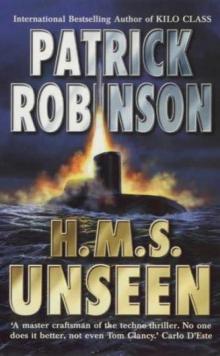 H.M.S. Unseen am-3
H.M.S. Unseen am-3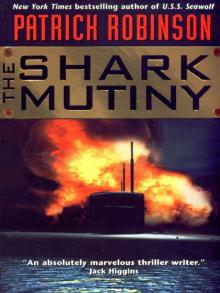 The Shark Mutiny (2001)
The Shark Mutiny (2001)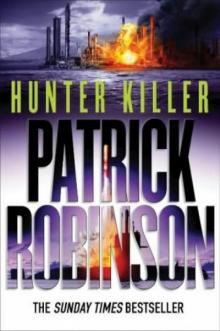 Hunter Killer am-8
Hunter Killer am-8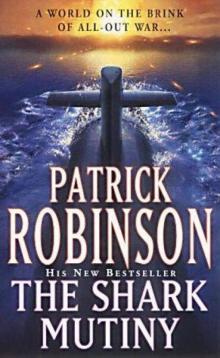 The Shark Mutiny am-5
The Shark Mutiny am-5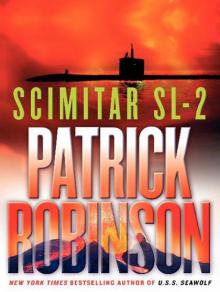 Scimitar SL-2
Scimitar SL-2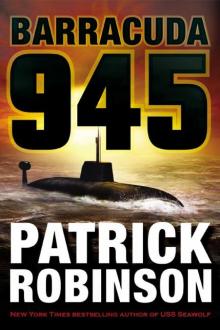 Barracuda 945 am-6
Barracuda 945 am-6 Hunter Killer
Hunter Killer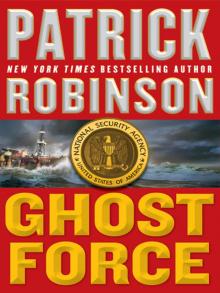 Ghost Force
Ghost Force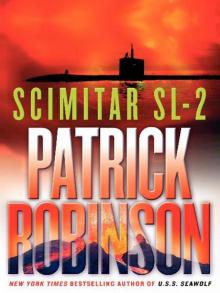 Scimitar SL-2 (2004)
Scimitar SL-2 (2004)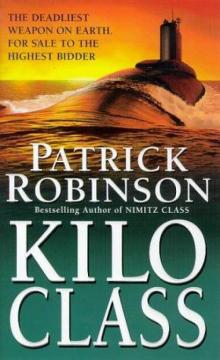 Kilo Class am-2
Kilo Class am-2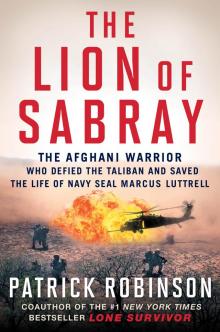 The Lion of Sabray
The Lion of Sabray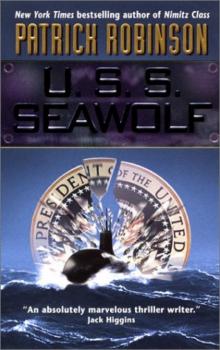 U.S.S. Seawolf am-4
U.S.S. Seawolf am-4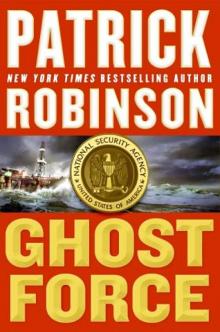 Ghost Force am-9
Ghost Force am-9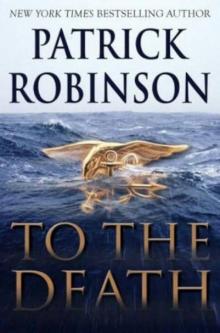 To the Death am-10
To the Death am-10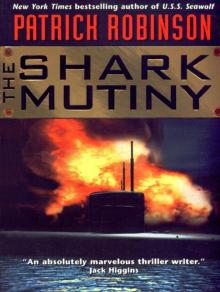 The Shark Mutiny
The Shark Mutiny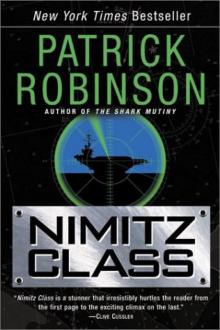 Nimitz Class am-1
Nimitz Class am-1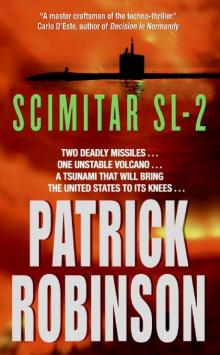 Scimitar SL-2 am-7
Scimitar SL-2 am-7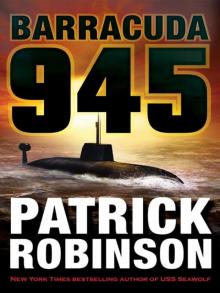 Barracuda 945
Barracuda 945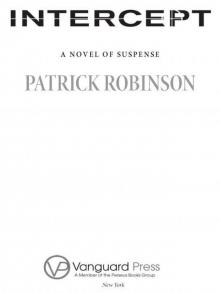 Intercept
Intercept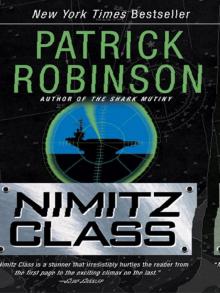 Nimitz Class (1997)
Nimitz Class (1997)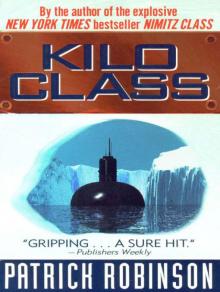 Kilo Class
Kilo Class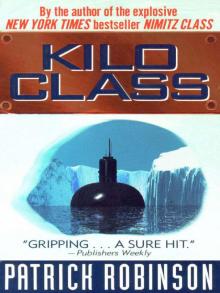 Kilo Class (1998)
Kilo Class (1998)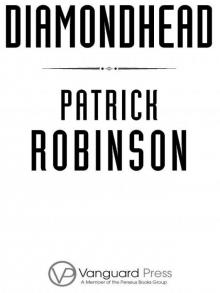 Diamondhead
Diamondhead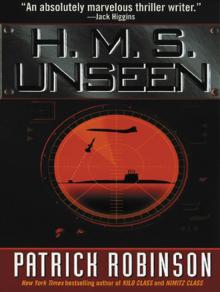 H.M.S. Unseen
H.M.S. Unseen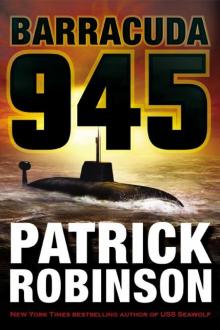 Barracuda 945 (2003)
Barracuda 945 (2003)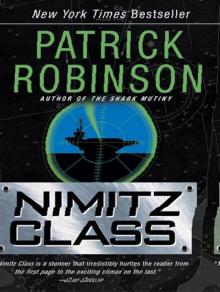 Nimitz Class
Nimitz Class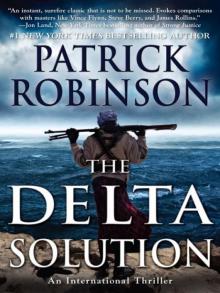 The Delta Solution
The Delta Solution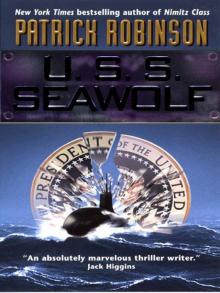 U.S.S. Seawolf
U.S.S. Seawolf